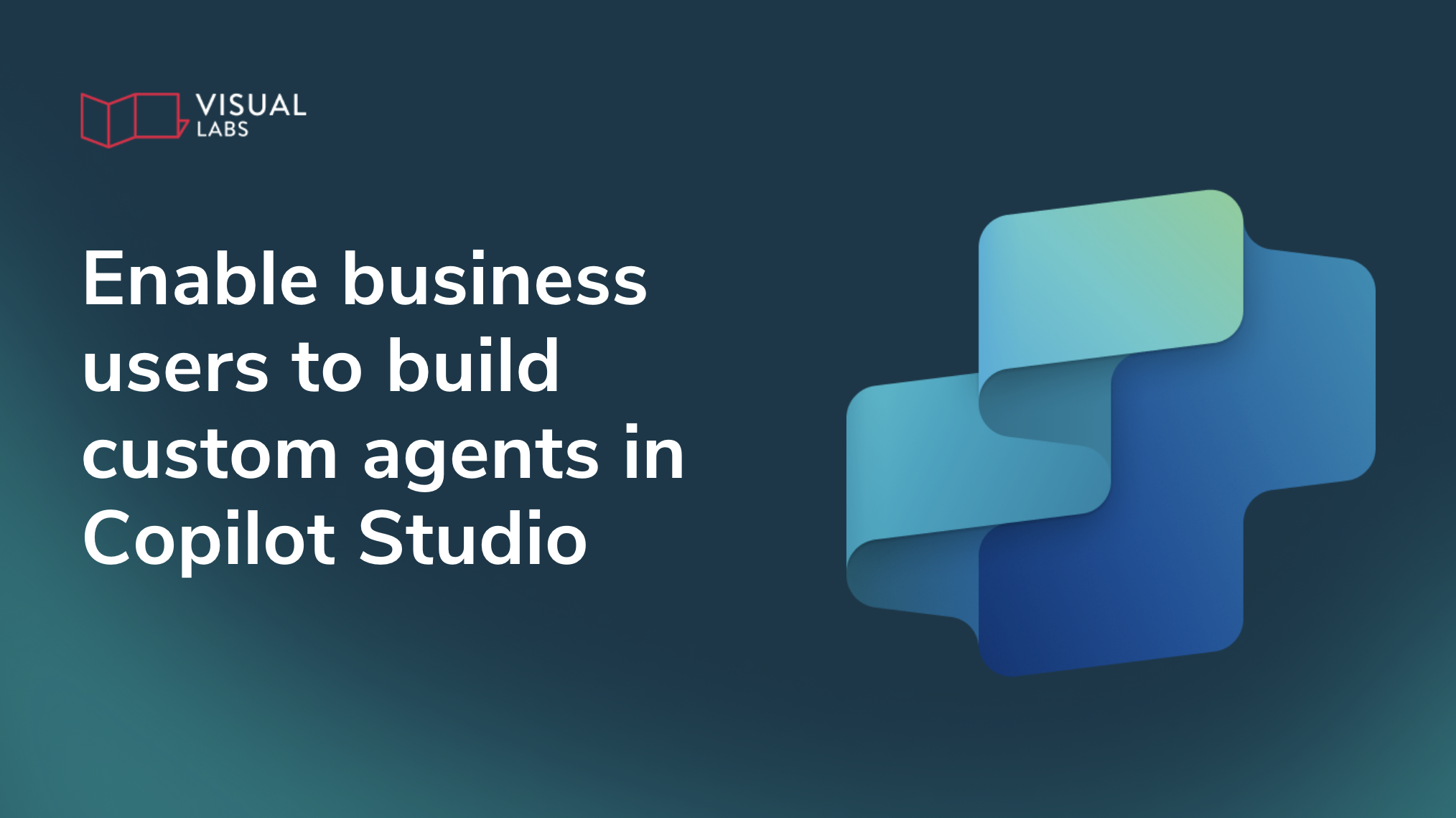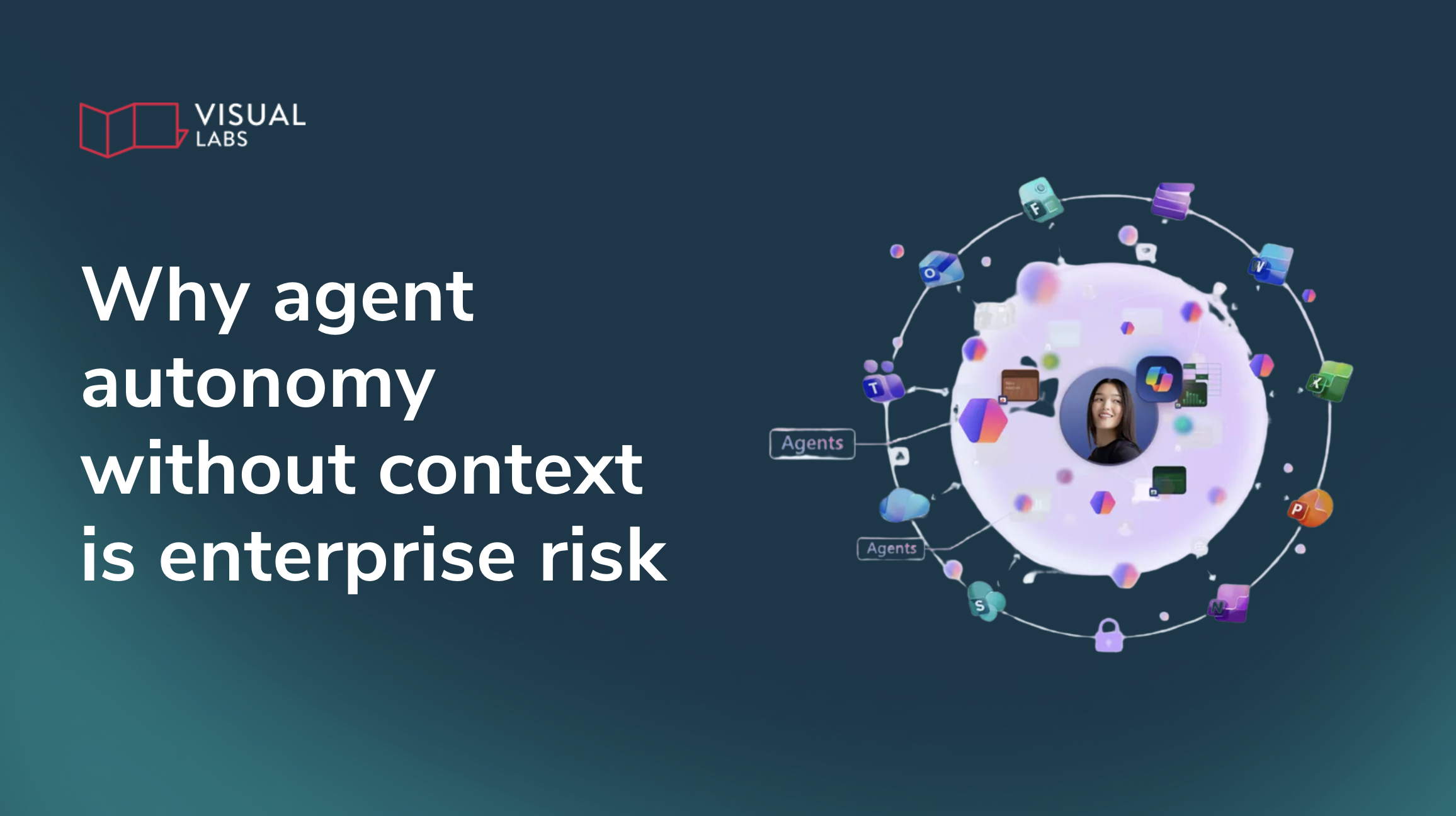How to enable citizen developers to build custom agents in Copilot Studio

TL;DR:
Ops teams play a critical role in enabling citizen developers to build custom AI agents in Microsoft Copilot Studio. With natural language and low-code tools, non-technical staff can design workflows by simply describing their intent. The approach works well for structured processes but is less effective for complex file handling and multilingual prompts. To avoid compliance risks, high costs, or hallucinations, Ops teams must enforce guardrails with Data Loss Prevention, Purview, and Agent Runtime Protection Status. Adoption metrics, security posture, and clear business use cases signal when an agent is ready to scale. Real value comes from reduced manual workload and faster processes.
From chatbots to AI agents: lowering the barrier to entry
Copilot Studio has come a long way from its Power Virtual Agents origins. What was once a no-code chatbot builder has become a true agent platform that combines natural language authoring with low-code automation.
This shift means that “citizen developers” — business users, non-technical staff in finance, HR, or operations — can now design their own AI agents by simply describing what they want in plain English. For example:
“When an invoice arrives, extract data and send it for approval.”
Copilot Studio will automatically generate a draft workflow with those steps. Add in some guidance around knowledge sources, tools, and tone of voice, and the result is a working agent that can be published in Teams, Microsoft 365 Copilot, or even external portals.
This lowers the barrier to entry, but it doesn’t remove the need for structure, governance, and training. That’s where the Ops team comes in.
Good to know: Where natural language works — and where it doesn’t
The AI-assisted authoring in Copilot Studio is powerful, but it has limits. Citizen developers should know that:
- Strengths: Natural language works well for structured workflows and simple triggers (“if an RFP arrives, collect key fields and notify procurement”).
- Weaknesses: File handling is still a challenge. Unlike M365 Copilot or ChatGPT, Copilot Studio agents are not yet great at tasks like “process this document and upload it to SharePoint” purely from natural language prompts. These scenarios require additional configuration.
- Localisation gaps: Native Hungarian (and many other languages) aren’t yet supported, so prompts must be translated to English first — with the risk of losing substance.
For Ops teams, this means setting realistic expectations with business users and stepping in when agents need to move from prototype to production.
Setting guardrails: governance, security, and compliance
Citizen development without governance can quickly become a compliance risk — or result in unexpected costs. Imagine a team lowering content moderation to “low” and publishing an agent that hallucinates, uses unauthorised web search, or leaks sensitive data.
To prevent these scenarios, Ops teams should establish clear guardrails:
- Train citizen developers first on licenses, costs, knowledge sources, and prompting.
- Apply DLP policies — Power Platform Data Loss Prevention rules can extend into Copilot Studio, preventing risky connectors or external file sharing.
- Leverage Microsoft Purview to enforce compliance and detect policy violations across agents.
- Check Monitor Protection Status — each Copilot Studio agent displays a real-time security posture, flagging issues before they escalate.
- Define a governance model — centralised (Ops reviews every agent before publishing) or federated (teams experiment, Ops provides oversight). For organisations new to citizen development, centralised control is often the safer path.
The goal is to strike the right balance: empower citizen developers, but ensure guardrails keep development secure and compliant.
Scaling and adoption: knowing when to step in
Citizen-built agents can add value quickly, but Ops needs to know when to take over. Some key signs:
- Adoption metrics — Copilot Studio provides data on engagement, answer quality, and effectiveness scores. If an agent is gaining traction, it may need Ops support to harden and scale.
- Security posture — monitoring Protection Status helps Ops see when an agent needs adjustments before wider rollout.
- Clear use case fit — when a team builds an agent around a defined business process (invoice approval, employee onboarding), it’s a good candidate to formalise and extend.
Ops teams should also set up lifecycle management and ownership frameworks to avoid “shadow agents” that nobody maintains.
How to measure the real value of custom agents
Metrics like adoption, effectiveness, and engagement tell part of the story. But the real measure of success is whether agents help reduce manual workload, accelerate processes, and cut costs.
For example:
- Does the HR onboarding agent save time for hiring managers?
- Does the finance approval agent speed up invoice processing and payment approvals?
- Is there a reduction in number of tickets that Ops teams have to handle because business users solve their needs with agents?
These qualitative outcomes matter more than raw usage stats — and Ops is best positioned to track them.
Takeaways for Ops teams
Enabling citizen developers in Copilot Studio is all about finding the right balance. You want to give business users the freedom to experiment with natural language tools and ready-made templates. At the same time, it helps to teach them the basics — how to prompt effectively, what knowledge sources to use, and even what the licensing costs look like.
Of course, freedom comes with responsibility. That’s why Ops needs to set guardrails through DLP, Purview, and centralised reviews. And as agents start getting real traction, it’s important to keep an eye on adoption metrics so you know when a quick experiment is ready to be treated as an enterprise-grade solution.
When you get this balance right, it becomes a scalable and secure way for the business to automate processes — with Ops guiding the journey rather than standing in the way.
Ready to see how Copilot Studio could empower your teams? Get in touch with our experts and discuss your use case!
Blog posts

What does your AI agent actually understand about your business?
Heading 1
Heading 2
Heading 3
Heading 4
Heading 5
Heading 6
Lorem ipsum dolor sit amet, consectetur adipiscing elit, sed do eiusmod tempor incididunt ut labore et dolore magna aliqua. Ut enim ad minim veniam, quis nostrud exercitation ullamco laboris nisi ut aliquip ex ea commodo consequat. Duis aute irure dolor in reprehenderit in voluptate velit esse cillum dolore eu fugiat nulla pariatur.
Block quote
Ordered list
- Item 1
- Item 2
- Item 3
Unordered list
- Item A
- Item B
- Item C
Bold text
Emphasis
Superscript
Subscript

Why Copilot Studio needs control as agents move from answers to actions
Heading 1
Heading 2
Heading 3
Heading 4
Heading 5
Heading 6
Lorem ipsum dolor sit amet, consectetur adipiscing elit, sed do eiusmod tempor incididunt ut labore et dolore magna aliqua. Ut enim ad minim veniam, quis nostrud exercitation ullamco laboris nisi ut aliquip ex ea commodo consequat. Duis aute irure dolor in reprehenderit in voluptate velit esse cillum dolore eu fugiat nulla pariatur.
Block quote
Ordered list
- Item 1
- Item 2
- Item 3
Unordered list
- Item A
- Item B
- Item C
Bold text
Emphasis
Superscript
Subscript
Ready to talk about your use cases?
Request your free audit by filling out this form. Our team will get back to you to discuss how we can support you.


